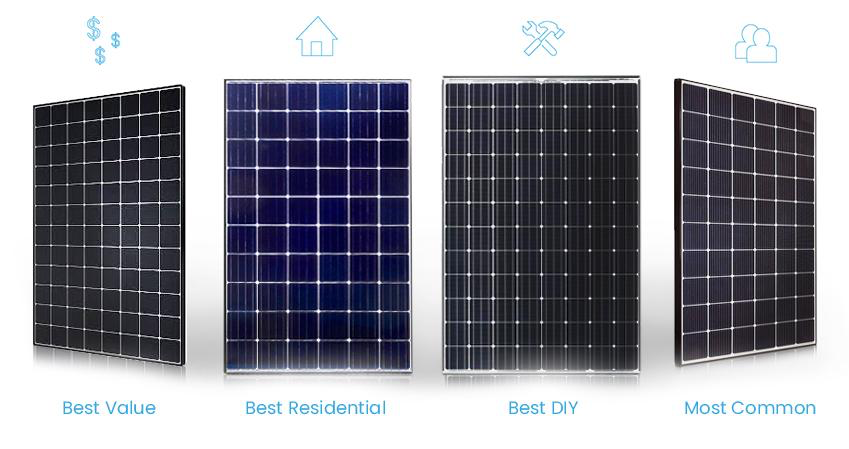The Complete Guide to Solar Panels
Sponsored Content: This is a paid blog post, and SEIA does not endorse the content of this post or the content of websites linked within the post.
Wednesday, Jun 19 2019

Are you wondering what type of solar panel is best suited for your home? Solar-Estimate has put together a comprehensive guide to some of the best solar panels in the industry.
The guide was developed using a combination of consumer reviews from SolarReviews.com and Solar-Estimate’s own expert insights.
It focuses on several different ways of categorizing solar panels. The first category, ‘Most Efficient Solar Panels,’ showcases cutting-edge technology from 5 different brands with efficiencies ranging from 19.6 percent to an impressive 22.7 percent.
‘Best Value Solar Panels’ sorts panels by lowest median price per Watt from installed residential systems in 2018. There are several components in addition to the panels themselves that make up the total cost of a solar installation. Therefore, the costs associated with solar panels in the guide don’t specifically represent the cost of the panels themselves but rather the installed systems they’re part of. The data in this section is similar to SolarReviews’ Solar Panel Cost data.
The ‘Most Common Panels’ category in 2018 is broken into four subcategories: Non-3rd Party Owned, 3rd Party Owned, Non-Residential, and DIY. The panels in this section are representative of public data from the California Solar Initiative. Solar-Estimate sorted through over 130,000 systems in 2018 in order to report the most common panels.
The final category is the ‘Best DIY’ section. The solar panel kits shown here represent an average residential system size of 7kW. Each kit has information detailing the panels, inverters, costs, and links to purchase.
After breaking down over 30 different solar panels into the above categories, the guide features a section devoted to answering common questions as well as a “dictionary” to fully explain the details included with each solar panel.
To help understand the different panel options even further, Solar-Estimate also displays warranty information. Traditionally, solar panel warranties can be confusing, cryptic, and buried in hard-to-read data sheets. Solar-Estimate has illustrated warranties for each panel in a consistent and easy to understand graph. Additionally, the final section of the page shows a comparison of a few common solar panel brands to give additional context on the importance and variety of warranties.
Going Solar in 2019
Solar-Estimate’s Guide to Solar Panels is a helpful resource to anyone looking to learn more about the available options in the industry. Similarly, SolarReviews has put together a concise guide to figure out if solar panels are right for you. If you’re less interested in reading and more interested in simply seeing a ballpark number of how much you can save with solar, you can use Solar-Estimate’s solar panel calculator.